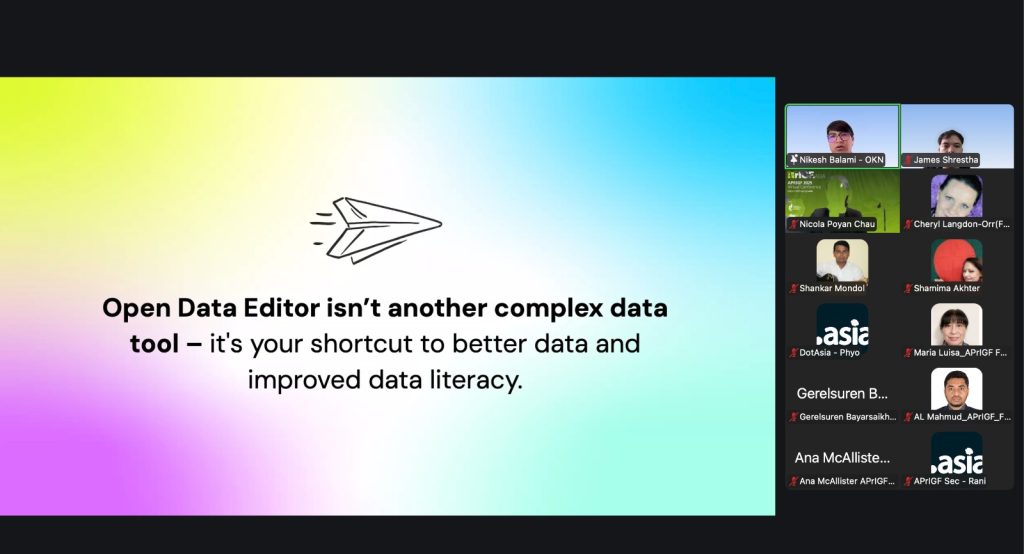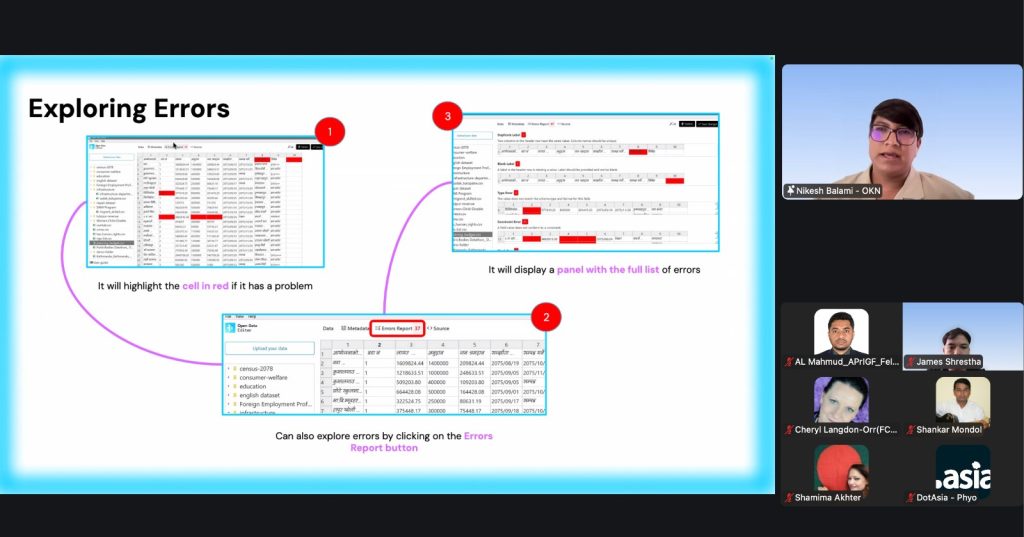Blog
Reflections from Our APrIGF 2025 Session: Unlocking Trust and Transparency through the Open Data Editor (ODE)
Nikesh Balami
|Mon Oct 27 2025
On October 14, 2025, Open Knowledge Nepal had the honor of hosting an engaging session at the Asia Pacific Regional Internet Governance Forum (APrIGF) 2025, titled “Empowering Data for All: Unlocking Trust and Transparency using Open Data Editor.”
Originally envisioned as an in-person workshop in Kathmandu, the session was seamlessly adapted into a virtual format following recent events in Nepal – yet the enthusiasm and engagement from participants across the Asia-Pacific region remained as strong as ever. Facilitated by Nikesh Balami, with James Shrestha supporting interactive elements and technical management, the session provided participants with a hands-on introduction to the Open Data Editor (ODE) – an offline-first, open-source desktop application developed by the Open Knowledge Foundation. Designed for non-technical users, ODE enables anyone to validate, clean, and audit datasets without coding skills, making it particularly valuable in low-connectivity and low-resource environments.

A Practical Learning Experience
The session began with an interactive Mentimeter poll to understand the audience’s background and experience level. The responses confirmed a diverse but aligned group of participants, civil society members, journalists, local government representatives, and open data practitioners, many of whom represented the very communities ODE seeks to empower.
Participants were introduced to the story behind ODE: its inception, purpose, and role in promoting accessible, privacy-respecting data tools. A live demonstration followed, where the facilitator showcased ODE using test datasets to explore its key functionalities such as error detection, data validation, and correction workflows. The demo segment helped participants see how ODE simplifies traditionally complex data cleaning tasks, especially in low-tech contexts.

Touching on deeper questions of inclusivity, data responsibility, and ethical tech design, the facilitator shared and dicussed on how tools like ODE can break down digital barriers and help build data confidence among communities that often remain excluded from digital governance processes. Discussions also explored ODE’s approach to data privacy and its deliberate choice to use local AI models instead of cloud-based APIs, ensuring that data never leaves the user’s device. This design principle resonated strongly with APrIGF’s broader themes of trust, security, and people-centered innovation.

Looking Ahead
While the one-hour format was fast-paced, the session succeeded in creating a practical environment. Participants left inspired to further explore ODE and to contribute to its development through co-creation and open collaboration.
The discussion reaffirmed a shared belief that empowering people with practical, open, and privacy-respecting tools is key to advancing digital inclusion and accountable governance. Integrating hands-on civic tech workshops like this within multi-stakeholder forums such as APrIGF ensures that conversations about governance are grounded in tangible, community-centered solutions.
We extend our heartfelt thanks to APrIGF 2025 organizers and to everyone who joined us virtually to make this session a success.